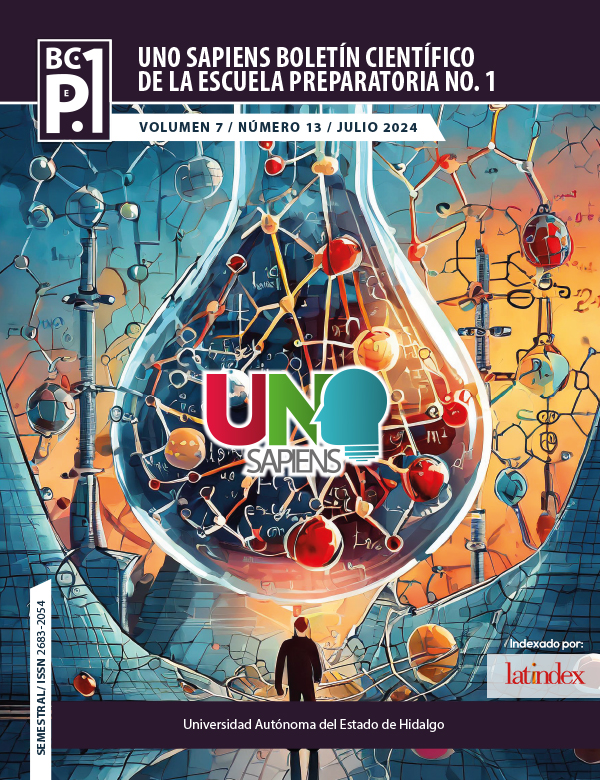Educación matemática realista
Abstract
En este artículo se describen las características y fundamentos de la aproximación didáctica denominada teoría de la Educación Matemática Realista. En particular, caracterizamos esta perspectiva en términos del tipo de tareas que propone, así como de la estructura del escenario didáctico, incluyendo las funciones desempeñadas por el docente durante el proceso de instrucción. Se explicitan los fundamentos ontológicos, epistemológicos y didácticos subyacentes en la teoría. Además, se enuncian algunos principios prácticos orientados al diseño de tareas y del escenario instruccional. Finalmente, se identifican algunas ventajas y desventajas de la teoría.
References
Arenas, R. D. M., Fernández, V. E. R., Rivadeneira, R. O. A., García, J. F., Cueto, B. A. L., & Isusqui, J. C. P. La educación matemática realista y su aplicación en el aula de clases. Lima: Editorial Mar Caribe; 2023.
Ausubel, D. P. The facilitation of meaningful verbal learning in the classroom. Educational Psychologist 1977; 12(2): 162-178.
Bressan, A., Zolkower, B., & Gallego, M. F. Los principios de la educación matemática realista. En: Alagia, H., Bressan, A., & Sadowsky, P., editores. Reflexiones teóricas para la educación matemática. Buenos Aires: Libros del Zorzal; 2005: 69-96.
Burger, W. F. & Shaughnessy, J. M. Characterizing the van Hiele levels of development in geometry. Journal for Research in Mathematics Education 1986; 17(1): 31-48.
Doorman, M., Drijvers, P., Dekker, T., van den Heuvel-Panhuizen, M., de Lange, J., & Wijers, M. Problem solving as a challenge for mathematics education in The Netherlands. ZDM 2007; 39: 405-418.
Freudenthal, H. Revisiting Mathematics Education. Dordrecht: Kluwer Academic Publishers; 1991.
Freudenthal, H. Mathematics as an educational task. Dordrecht: D. Reidel Publishing; 1972.
Godino, J. D. Bases epistemológicas e instruccionales del Enfoque Ontosemiótico en Educación Matemática. 2018. Recuperado el 18 de noviembre de https://bit.ly/3sPci5E
Parra S., H. Claves para la contextualización de la matemática en la acción docente. Omnia 2013; 19(3): 74-85.
Piaget, J. Epistemología genética. Buenos Aires: Solpus; 1977.
Schön, D. The reflective practitioner: how professionals think in action. New York: Basic Books; 1983.
Treffers, A. Whiskobas and Freudenthal realistic mathematics education. Educational Studies in Mathematics 1991; 25: 89-103.
Van Den Heuvel-Panhuizen, M. Mathematics education in the Netherlands: A guided tour. Freudenthal Institute CD-rom for ICME9; 2000: 1-32.
Van Den Heuvel-Panhuizen, M., & Drijvers, P. Realistic mathematics education. En: Lerman, S., editor. Encyclopedia of mathematics education. Dordrecht: Springer; 2020: 713-717.
Vygotsky, L. S. Mind in society: The development of higher mental processes. Cambridge: Harvard University Press; 1978.
Wubbels, T., Korthagen, F., & Broekman, H. Preparing teachers for realistic mathematics education. Educational Studies in Mathematics 1997; 32: 1-28.
Zolkower, B., Bressan, A. M., Pérez, S., & Gallego, M. F. From the bottom up—Reinventing realistic mathematics education in Southern Argentina. International Reflection in the Netherlands Didactics of Mathematics: Vision on and Experiences with Realistic Mathematics Education 2020, 133-166
Copyright (c) 2024 Nadia Iveth Rosas Pérez, Luis Javier Vega Mondragón , Aarón Reyes Rodríguez

This work is licensed under a Creative Commons Attribution-NonCommercial-NoDerivatives 4.0 International License.








